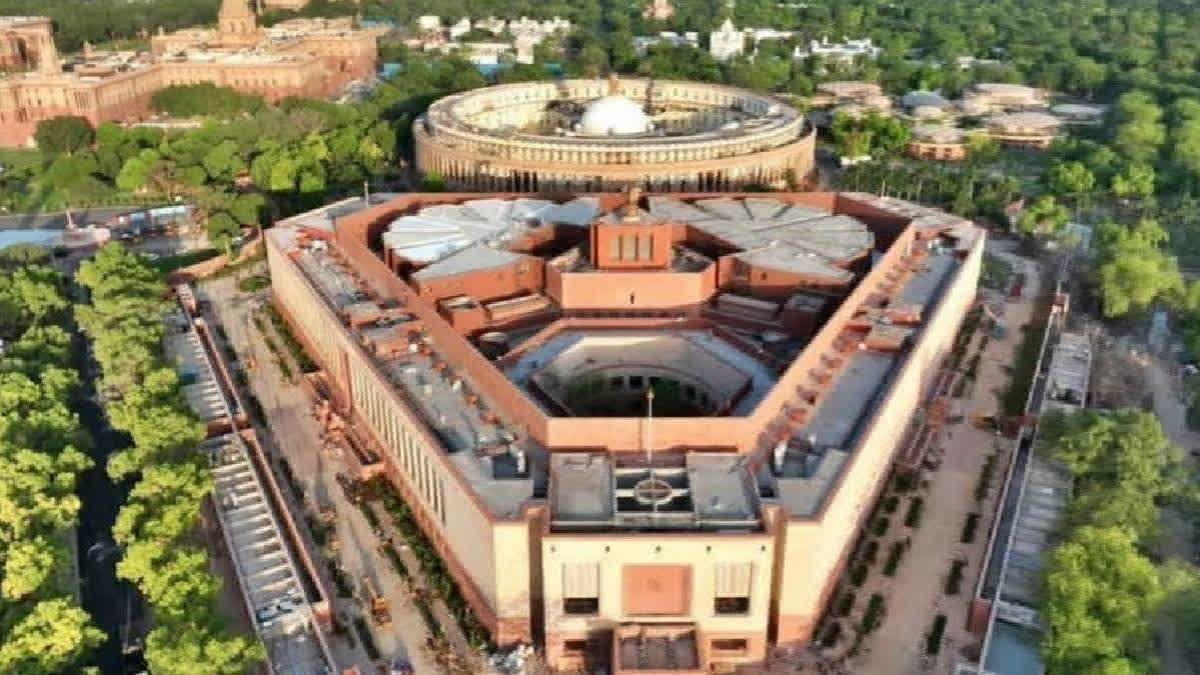New Delhi: At least 10 opposition MPs in the Parliamentary Committee of Home Affairs have been giving dissent notes against the draft reports on criminal laws even as the committee chaired by BJP member Brij Lal on Monday adopted the draft reports. Sources said that three opposition MPs, including Congress’s P Chidambaram, Trinamool Congress’s Derek O’Brien and N Dravida Munnetra Kazhagam’s R Elango, who were present at Monday's meeting opposed the draft report.
Elango, Congress’s Digvijay Singh and Adhir Ranjan Choudhary of Congress had submitted dissent notes earlier. It is learnt that Chidambaram, Derek and Kakoli Ghosh Dastidar (TMC) will submit a dissent note by Wednesday. Sources said that the government is likely to table the three adopted reports in the coming session of Parliament.
The Parliamentary Committee was earlier supposed to adopt the draft report on October 27, but due to objections raised by opposition MPs, the meeting was rescheduled for November 6. The MPs sought additional time to study the draft reports circulated late last month. Sources said that some more MPs are likely to submit their dissent notes in the next two to three days, as per rule, on the three Bills to replace the Indian Penal Code (IPC), The Code of Criminal Procedure, 1973 and the Indian Evidence Act, 1872 with Bharatiya Nyaya Sanhita, Bharatiya Nagarik Suraksha Sanhita and Bharatiya Sakshya Adhiniyam.
Also read: Amit Shah, members of parliamentary panel on official language meet Prez Murmu; submit report
The draft report stated that India’s criminal justice system has been predominantly shaped by laws and regulations inherited from the British colonial era. In the post-independence years, these legal foundations underwent alterations and amendments to align with the evolving requirements of modern times.
“The experience of seven decades of Indian democracy calls for a comprehensive review of our criminal laws, including the Code of Criminal Procedure and adopting them by the contemporary needs and aspirations of the people. This need for change is reflected in the Bharatiya Nagarik Suraksha Sanhita, 2023, which is set to replace the Code of Criminal Procedure, 1973,” the report said. The proposed Bharatiya Nyaya Sanhita, 2023, seeks to change the nature of the law (IPC) towards providing justice rather than punishment and would be a step forward to remove traces of a colonial mindset.
The experience of more than seven decades of democratic governance highlighted that the Act (Indian Evidence Act (IEA), which was enacted in 1872, has not kept pace with the evolving criminal activities as it has not imbibed the best practices that have developed in the field of criminology in recent times.
“Attempts have been made to bridge the gap in the Act by way of amendments. However, such a piece-meal approach through repeated amendments is inadequate to comprehensively address the issues in the Act and it was clear that an overhaul of the Act was required,” the draft report stated.



